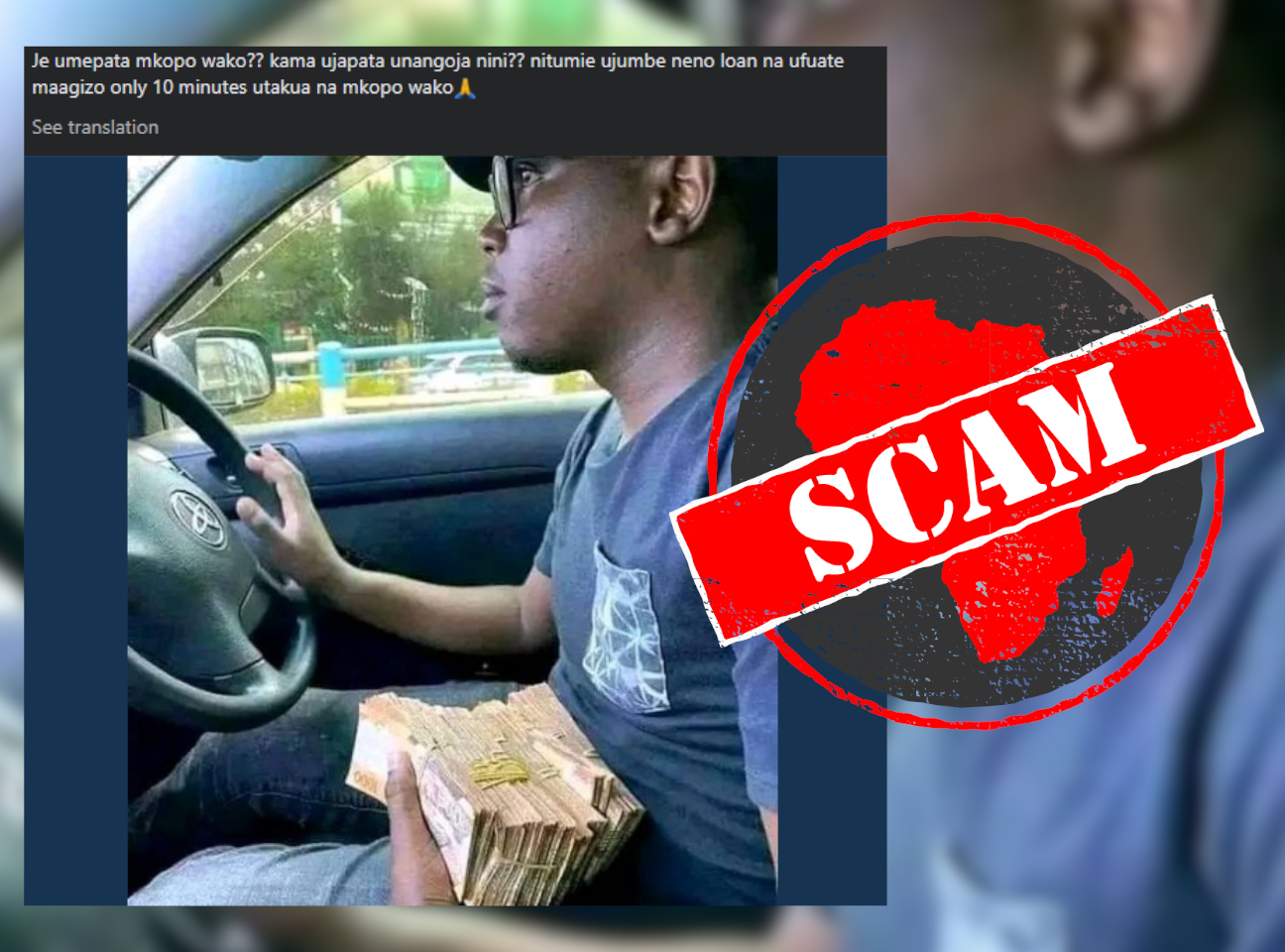IN SHORT: A Facebook page claiming to belong to the former governor of the country’s Kakamega county is promising loans to Kenyans within 10 minutes. But Oparanya has not had a Facebook account since August 2022.
The page Wickliffe Oparanya loans claims to offer loans to Kenyans on Facebook.
It uses the name and photos of Wycliffe Oparanya, the former governor of Kenya’s Kakamega county.
One of its posts, dated 6 July 2023, reads: “Je umepata mkopo wako?? kama ujapata unangoja nini?? nitumie ujumbe neno loan na ufuate maagizo only 10 minutes utakua na mkopo wako.”
This mix of English and Kiswahili languages translates to: “Have you received your loan? If not, what are you waiting for? Send me a message with the word ‘loan’ and follow the instructions. You will receive your loan within ten minutes.”
The page has made many similar loan offers, with its posts attracting thousands of engagements.
But is the page and the offers legit? We checked.

Signs of scam
The poor grammar on the Facebook page is the first sign that it is not to be trusted. Its posts have spelling errors and odd punctuation, unlike the former governor's posts and tweets.
Another clue that the page is fake is that it used to offer loans even when Oparanya had his own verified Facebook page. It is unlikely that Oparanya would have run two Facebook pages at the same time and dedicate the unverified one to offering loans.
Oparanya’s verified Facebook page was hacked in August 2022. He reported this on his Twitter account. He has since given no updates on its recovery.
Besides, none of the adverts appear on the former governor’s official Twitter account, which has over 462,000 followers.
All signs point to a fake Facebook page with scam offers.
To help protect yourself against scams, see Africa Check’s guide to Facebook scams and how to spot them.
Republish our content for free
For publishers: what to do if your post is rated false
A fact-checker has rated your Facebook or Instagram post as “false”, “altered”, “partly false” or “missing context”. This could have serious consequences. What do you do?
Click on our guide for the steps you should follow.
Publishers guideAfrica Check teams up with Facebook
Africa Check is a partner in Meta's third-party fact-checking programme to help stop the spread of false information on social media.
The content we rate as “false” will be downgraded on Facebook and Instagram. This means fewer people will see it.
You can also help identify false information on Facebook. This guide explains how.


Add new comment